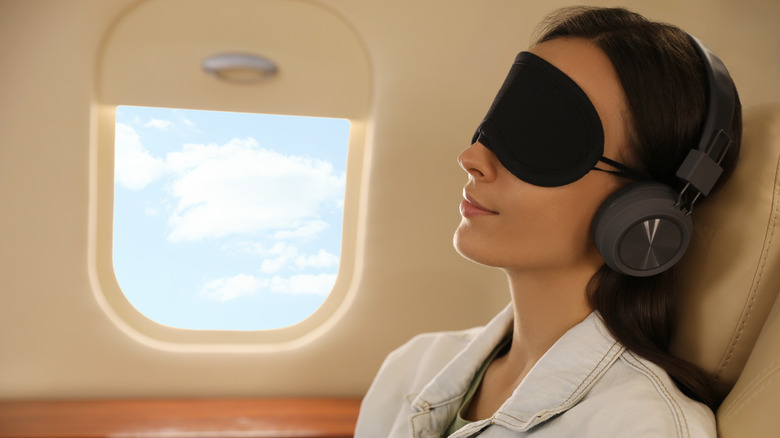What Is The Best Time Of Day To Book A European Flight To Fight Jet Lag?
Ugh, jet lag. Possibly the worst part of long-haul travel. Anyone who's flown across several time zones will have experienced that familiar fog of tiredness descending at 11 a.m. followed by being wide awake at 2 a.m. And while getting up in the middle of the night might help you beat the crowds at Europe's most popular tourist attractions, it's not exactly conducive to a good trip in any other way.
Sleep Foundation notes that jet lag happens when we travel across three or more time zones. And, there's bad news for anyone traveling from the U.S. to Europe: jet lag is worse when you travel east than it is when you travel west. Why is this? The Sleep Doctor explains that jet lag is a response to the disruption of your body's normal circadian rhythm, and it's easier to delay your circadian rhythm than to advance it. Therefore, it takes longer to recover from a flight from New York to London than from London to New York. So how can you avoid losing out on the first few days of your vacation?
The best time to fly to Europe
If you want to avoid jet lag as much as possible, try to find a flight that arrives in Europe in the mid-afternoon or evening. This means leaving North America in the early morning. As travel blogger Full Suitcase explains, it's fairly easy to stay awake for just a few hours and then head to bed at a reasonable time in your destination. It's much harder to stay awake all day, and a quick nap can easily turn into an eight-hour sleep if you're jetlagged. Red-eye flights got their name for a reason.
However, it might not be easy to avoid taking an overnight flight to Europe. Simple Flying's research reveals that if you're flying from New York's JFK to Frankfurt, all four airlines flying the route arrive in Europe in the early morning. You will need to search for daytime flights and you might have to pay more for them. If you do end up on a red-eye, bring a sleep mask and noise-canceling headphones onto the plane to increase your chances of getting some rest.
Other ways to avoid jet lag
Mayo Clinic has a list of recommendations for travelers to help prevent or offset jet lag. A big one is regulating your exposure to bright light, as this is one of the things that has a large impact on your circadian rhythm. If you've traveled eastward, get outside in the sunshine in the morning and help your body wake up. They also recommend staying hydrated –- water, not an Aperol spritz in an Italian café –- as dehydration can make the symptoms of jet lag worse.
Sleep Foundation adds that travelers can try to adjust their internal clock before they travel. If you're going from the U.S. to Europe, this would mean going to bed earlier than normal for a few nights before your trip. Our final tip is for those who are feeling flush: upgrade to business class and travel with an airline that has lie-flat seats so you can snooze your way across the Atlantic. Yeah, we wish we could too.


